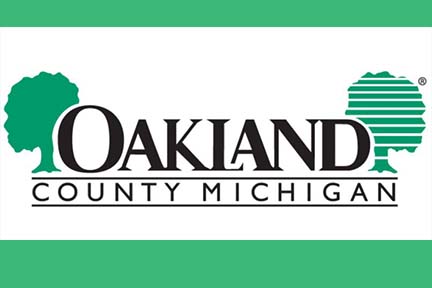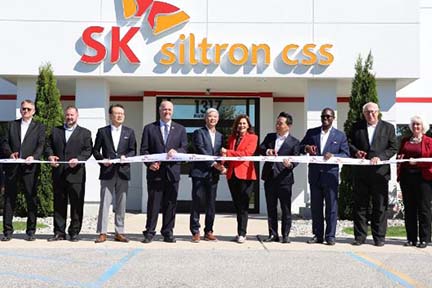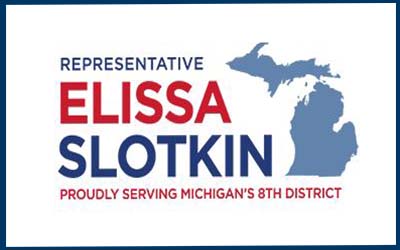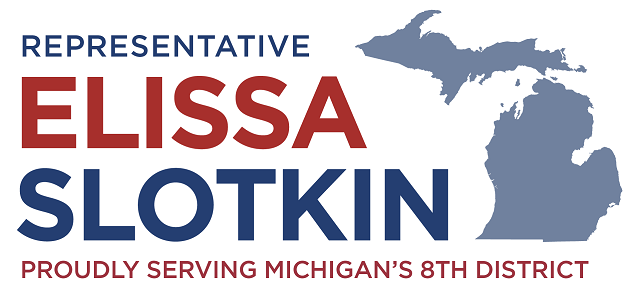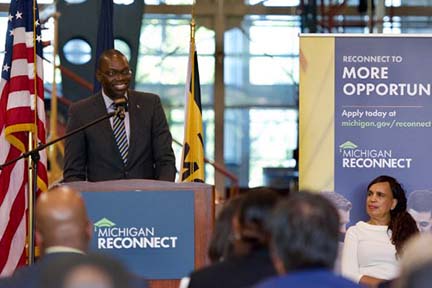
Gov. Whitmer & SK Siltron Bring Semiconductor Supply Chain to Michigan with New Bay City Facility
$300 million investment secured by Governor Whitmer will ensure future of semiconductors is made in Michigan, strengthen high-tech manufacturing, and reduce shortages and delays of critical products
BAY CITY, Mich. – Governor Gretchen Whitmer joined business, state, and local officials today to celebrate the ribbon cutting of semiconductor wafer manufacturer SK Siltron’s new facility in Bay City. Michigan was selected for this $300 million investment over several other states, and the facility will bring supply chains home and reduce shortages and delays. The governor fought to secure this investment, which will create up to 150 good-paying jobs in the area and build on Michigan’s leadership role in the high-tech semiconductor supply chain.
“SK Siltron’s commitment to Michigan will help us bring the semiconductor supply chain home, cut down shortages and delays, and create good-paying jobs for Michiganders in Bay City,” said Governor Whitmer. “The products SK Siltron manufactures are the building blocks of countless products and industries: electric vehicles, solar panels, smartphones, and so much more—we cannot let China dominate this market. I am proud that Michigan was selected for this $300 million investment over several other states, proving that we have the skilled workforce, growing economy, and strong business-friendly environment conducive to attract projects from one of the world’s most innovative companies. I will work with anyone to keep bringing supply chains home, build on our high-tech manufacturing leadership, and create opportunity for Michiganders in every region.”
“SK Siltron CSS is thrilled to expand our presence in Michigan and reinforce our commitment to the entire Bay City community, while creating high-paying jobs and new investment opportunities,” said Jianwei Dong, Chief Executive Officer of SK Siltron CSS. “The exceptional people of Bay City and our strong local partners are the reason we were able to expand so aggressively in the area. The support we have received is truly unmatched. This significant investment in Bay City will further boost the confidence levels of not only our customers, but also the entire electrical vehicle value chain to accelerate the pace of EV adoption.”
“This new manufacturing facility will create good-paying jobs in mid-Michigan and boost American manufacturing,” said Congressman Dan Kildee (MI-05). “With new laws like the CHIPS and Science Act, we’re bringing back manufacturing jobs to Michigan, fixing supply chains and helping to lower costs for Michigan families. Making wafers and semiconductors here in Michigan will decrease our reliance on foreign-made goods and support good-paying jobs. Michigan has the best workers in the world, and I applaud SK Siltron for expanding their commitment to our community.”
“SK Siltron’s high-profile commitment underscores the strength of our state’s high-tech manufacturing workforce and represents a critical win as we continue to attract long-term investments from semiconductor companies from around the world,” said Quentin Messer, Jr., CEO of the MEDC and President and Chair of the Michigan Strategic Fund. “We are grateful to SK Siltron and for the leadership and support of Gov. Whitmer, our legislative partners and our partners at Bay Future, Inc. in securing this impactful project in Bay County. Today’s ribbon cutting is delivering on Team Michigan’s commitment that Michigan’s economic recovery is experienced by all 10 million plus of our friends and neighbors.”
SK Siltron CSS Background
SK Siltron CSS, headquartered in Auburn, Mich. (Bay County), announced plans in August 2021 to expand production of much-needed silicon carbide wafers, considered the future of the industry because of their ability to efficiently transfer energy. The company acquired and rehabilitated a facility in Monitor Township, near Bay City, to support its growth.
The project is expected to result in the creation of up to 150 jobs and was supported by a $1.5 million Michigan Business Development Program performance-based grant. Michigan was chosen for the project over sites in Georgia, North and South Carolina, Tennessee, and Texas for its talent and proximity to automakers.
The project will result in high-wage jobs in high-tech manufacturing ranging from semi-skilled operators to engineers, and will continue to strengthen Michigan’s automotive, mobility and advanced manufacturing industries. The semiconductor industry already contributes $4.6 billion in total gross regional project for the state of Michigan, with Michigan among the top states in the nation for semiconductor manufacturing. Adding the new jobs and this significant investment by SK Siltron CSS in Michigan solidifies the company’s presence and creates a stronger path toward future investment here in the state.
The demand for power semiconductors is rapidly increasing as automakers enter the electric vehicle market and telecommunication companies expand 5G capabilities. SK Siltron CSS manufactures a specialty wafer made of silicon carbide (SiC) that can be used in electric vehicles. SiC wafers are more efficient at handling high powers and conducting heat than normal silicon. When used in EV system components, this characteristic can allow a more efficient transfer of electricity from the battery to the motor, increasing the driving range of an EV by 5 to 10 percent.
Michigan Competes for Semiconductors
In the past year, Michigan has secured bold investments in semiconductor and polysilicon manufacturing. Bringing this critical chain home, from China to Michigan, will cut down on costly productions delays, make businesses more efficient, and ultimately pass savings on to consumers.
- Hemlock Semiconductor, a leading provider of high-purity polysilicon products for the electronic and solar power industries, onboarded over 400 full-time employees in Hemlock.
- KLA, a global semiconductor firm, opened their headquarters in Ann Arbor creating 600 good-paying jobs.
- Wacker, a chemical and polysilicon firm, opened a cutting-edge innovation center in Ann Arbor creating 300 good-paying jobs.
- SK Siltron, a semiconductor wafer manufacturer, announced a new facility near Bay City, creating 150 good-paying jobs.
- Calumet Electronics, one of a few American manufacturers producing organic substrate components for microelectronics, announced an expansion creating 80 jobs in the Keweenaw Peninsula.
Creating Opportunity in Bay City
“Bay County has played an acclaimed and key role in the storied history of the automotive industry in the state of Michigan. This significant investment and commitment by SK Siltron CSS reinforces that legacy and ensures that our community and state will continue to be at the forefront of mobility, technology, and ingenuity, now and well into the future,” said Trevor Keyes, President and CEO, Bay Future, Inc. “SK Siltron CSS is a world class, high technology, company that could have chosen to invest anywhere in the world, and chose Bay County, Michigan. We are appreciative that they decided to choose to invest here and are thankful to all of those who assisted in making this project a reality.”
SK Siltron CSS will work with local partners to train workers, focusing on critical initiatives to reskill and upskill workers for the sustained growth of the region. Specifically, SK Siltron CSS is proud to partner with Delta College through the Michigan New Jobs Training Program to support training in the skills needed for success in SiC wafer manufacturing.
Working closely with Delta College, SK Siltron CSS is developing specific content to support the skills needed for employment while demonstrating its commitment to helping prepare Michigan workers for careers in advanced manufacturing. Moreover, by making these opportunities available to employees at all levels, SK Siltron CSS is committed to advancing the careers of current employees and supporting their professional development.
Governor Whitmer’s CHIPS and Science Act Executive Directive
The CHIPS and Science Act will fund $52 billion in incentives to boost domestic semiconductor production and research, $2 billion of which would be dedicated to incentivizing production of the “mature node” semiconductors used by automakers and parts suppliers. Mature node chips are also used in medical devices, agricultural machinery like farm tractors and combines, as well as radiation-proof chips required by our national defense industrial base.
In early August, Governor Whitmer signed an executive directive instructing state departments and agencies to leverage incoming resources from the CHIPS and Science Act as effectively and efficiently as possible. The directive furthers collaboration with the MEDC to continue attracting long-term, sustainable investments from semiconductor companies around the world. Additionally, it instructs departments and agencies to identify opportunities for workforce development geared towards the needs of the semiconductor industry, including adapting existing programs, collaborating with higher education institutions, and providing targeted education and training with additional federal resources. Finally, it urges efficient approval of any permits, applications, or requests from the state to avoid duplication or delay.
The directive will help increase domestic chip production near automakers and spur innovation, reduce inefficiencies, and avoid costly delays. By securing a robust semiconductor supply chain—anchored by SK Siltron CSS, Hemlock Semiconductor, KLA, and Calumet Electronics—Michigan will keep attracting long-term, sustainable investments from companies around the world and bring supply chain home.
CHIPS and Science Act Opportunity for Michigan
The CHIPS and Science Act provides a new, powerful tool in Michigan’s economic development toolbox. Increasing domestic chip production near automakers and other manufacturers will spur innovation, reduce inefficiencies, and avoid costly delays, helping Michigan attract long-term, sustainable investments from companies around the world.
Late last year, the Michigan Legislature, businesses, labor, and utilities worked with Governor Whitmer to pass bipartisan economic development legislation that helped Michigan land a $7 billion investment from GM creating and retaining 5,000 good-paying jobs, and earlier this year, Ford invested $2 billion creating 3,200 jobs. The CHIPS and Science Act paves the way for more transformational projects that will invest billions into our communities and create tens of thousands of good-paying jobs.

|
